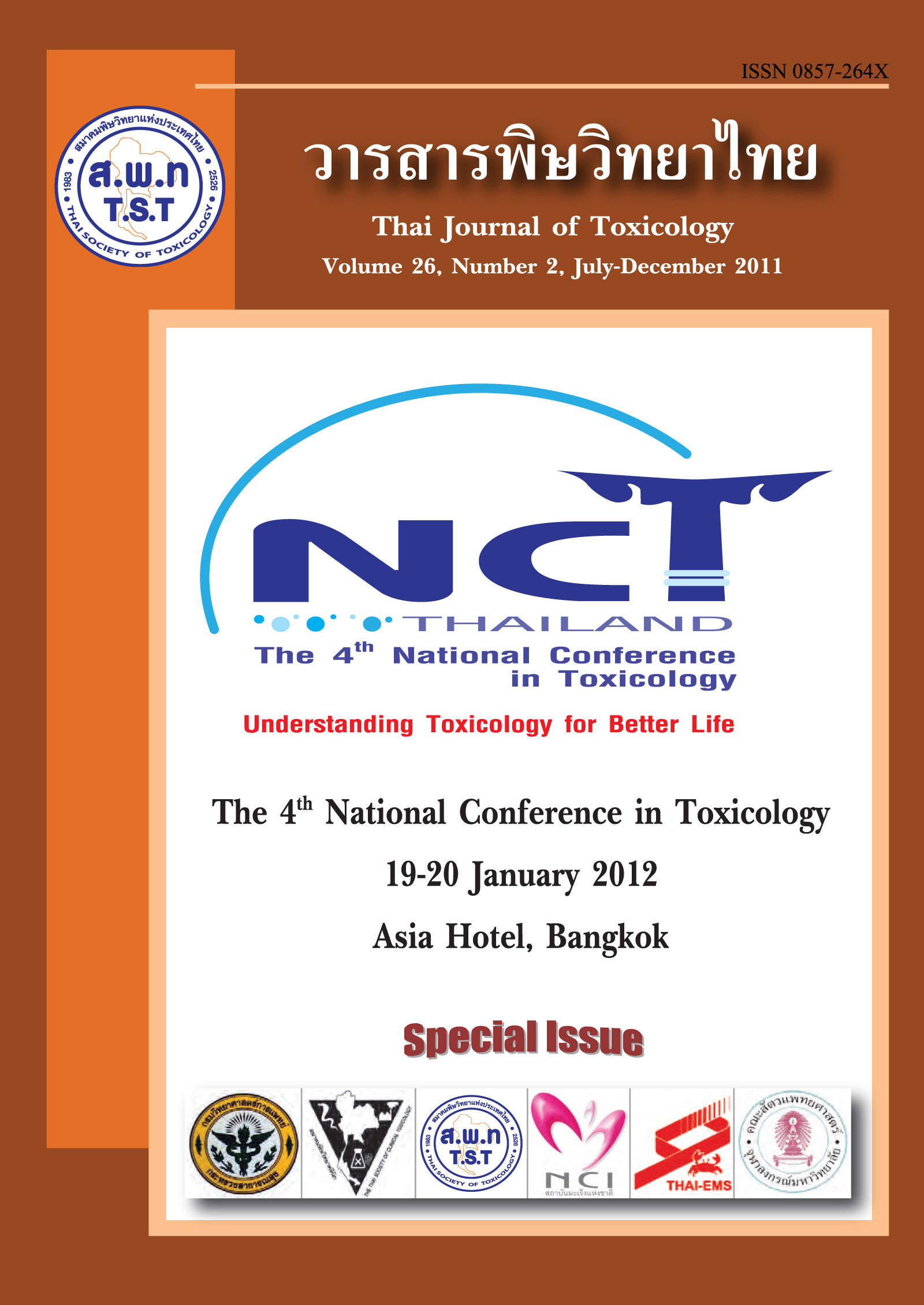Mutagenicity and Antimutagenicity in the Somatic Mutation and Recombination Test Using Drosophila melanogaster of Battered and Fried Thai Dishes
Main Article Content
Abstract
Seven battered and fried Thai dishes (BFTDs) were evaluated for their mutagenicity and antimutagenicity in the somatic mutation and recombination test using Drosophila melanogaster. Three-day old trans-heterozygous larvae, obtained by mating the virgin ORR; flr3 females and mwh/mwh males, were transferred to the medium containing each BFTD (for mutagenicity study) and the medium containing each BFTD and urethane (for antimutagenicity in the co-administration study) until they became adult flies. The antimutagenicity studies were also performed by mating the parental flies on the medium containing each sample to obtain the threeday- old larvae that were consequently raised on the medium containing only urethane (the prefeeding study type 1) or medium containing urethane and each sample (the pre-feeding study type 2 study) until they became adult flies. The wings of the surviving flies were analyzed for the occurrence of mutant spots. The result showed that none of the samples was mutagenic; however, each sample decreased the mutagenicity of urethane indicating the presence antimutagens of herbs and spices. It was noted that the inhibitory effect of most samples in the co-administration study was nearly the same as of the pre-feeding study type 1 and the inhibitory effect of most samples was the best in the pre-feeding study type 2. It was suggested, by the results according to the experimental design, that the components of most samples should not trap urethane but induced the detoxifying system that was stable throughout the whole period of study.


